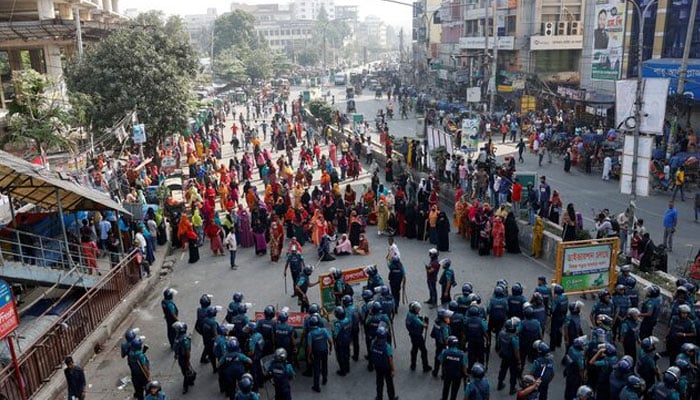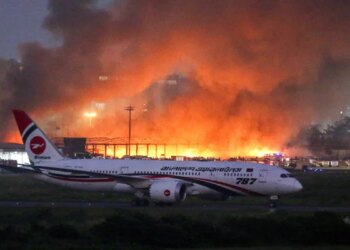Select Language:
Bangladesh Port Strike Halts Major Shipping Operations
On Sunday, Bangladesh’s largest port, Chittagong Port, was brought to a standstill as customs officials went on strike, halting all shipping operations.
This disruption is part of an ongoing conflict between employees of the National Board of Revenue (NBR) and the government, which is looking to restructure the tax authority.
"The port usually manages around 7,000 to 8,000 containers every day, but since early today, there has been no activity regarding the loading or unloading of goods," reported Mohammed Omar Faruq, the secretary of the Chittagong Port Authority. “This situation is significantly affecting the nation’s economy,” he added in an interview with AFP.
As the world’s second-largest manufacturer of garments, Bangladesh relies heavily on textile and clothing production, which represents roughly 80% of its total exports.
Mahmud Hasan Khan, president of the Bangladesh Garment Manufacturers and Exporters Association, estimated that the shipping suspension could cost the industry around $222 million. "The recovery costs will be monumental—beyond what we can imagine—and many factories are in danger of going bankrupt," he told AFP.
Customs staff at the NBR have been intermittently striking for weeks, protesting plans that involve dividing the authority into two separate entities.
In response, Bangladesh’s interim leader, Nobel Peace Prize winner Muhammad Yunus, has called for the staff to return to work. "We hope that the NBR employees will resume their duties, putting aside their illegal protests that go against the interest of the nation," his office stated.
On Sunday, staff were barred from entering their workplaces following a government directive aimed at curbing protests within their offices.
In addition, 13 business chambers gathered for a press conference on Saturday to urge the government to resolve the situation promptly.






